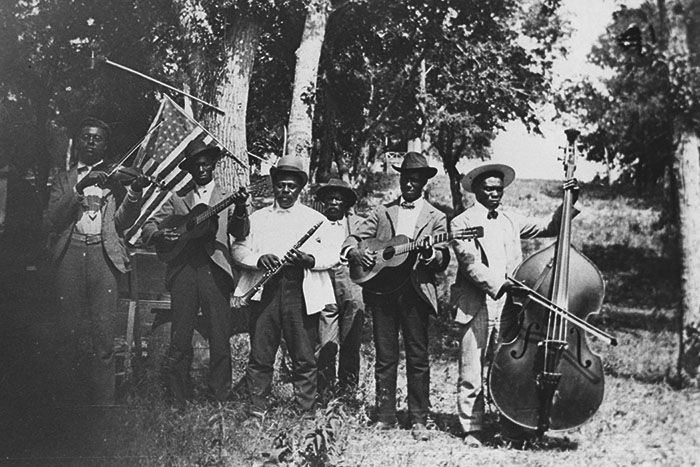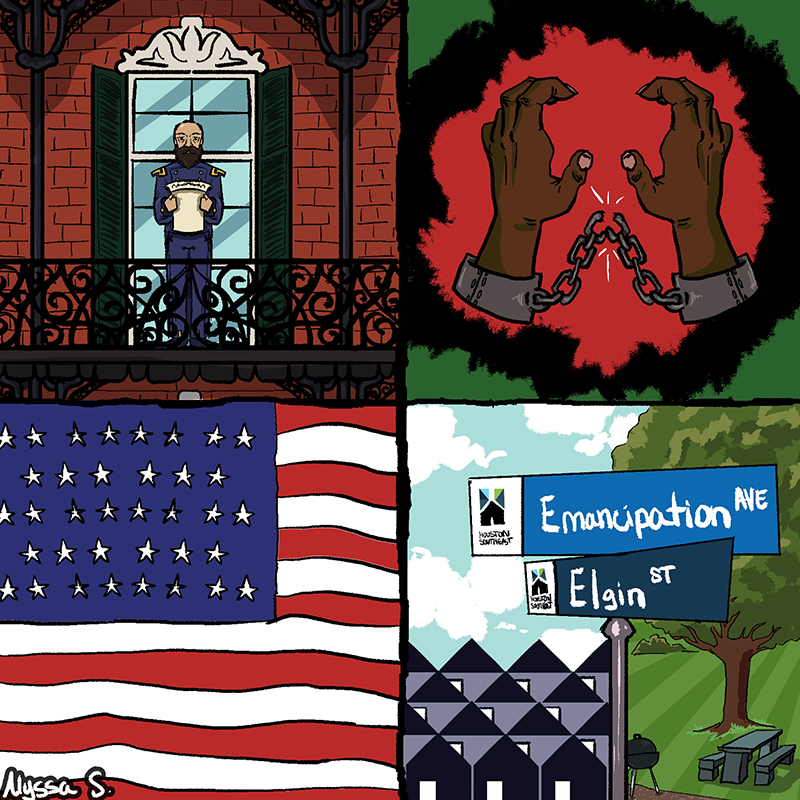
Juneteenth represents the true start of American freedom
When did Americans get their freedom? Most Americans would say July 4, the day the United States declared freedom from Great Britain, but for nearly 4 million slaves at the start of the Civil War, this date doesn’t apply.
The Emancipation Proclamation was signed in 1863, however, that didn’t formally apply to the entire United States since the Civil War reigned on for two more years. It excluded four border states, select counties and the South considered themselves as the “Confederate States of America.”
That executive order was a tactical play by President Lincoln to encourage slaves in the Confederacy to help the Union and was largely symbolic until the 13th amendment was passed in January 1865. The news of the emancipation being known and enforced to all occurred June 19, 1865. Therefore, the day of true liberation, which was coined Juneteenth, should be observed and celebrated as a national holiday of freedom for all Americans.
Even after the war ended and the 13th Amendment was passed, many slave owners furthest from the battle lines, like Texans, continued to hold slaves months afterward. Most slaves, having been illiterate and only in contact with those against the Union, were not informed of their freedom until Major General Gordon Granger completed his task in Galveston.
The Emancipation Proclamation’s orders included Texas, but it was not able to be enforced until General Granger reached the shore after the Civil War had ended. His mission was to inform all people of Texas of their freedom by reading “General Order No. 3” and to enforce that law against all resistance.
The Signal Reporter Miles Shellshear reads “General Order 3.” This speech was originally given on June 19, 1865 by General Granger at Ashton Villa in Galveston.
Juneteenth’s recognition has only come from people making an effort to push it into the public conscience. Celebrations for Juneteenth have never been consistently popular or widely accepted among most Americans. These celebrations consist generally of bar-b-que, spending time with family, prayer, live readings and reenactments of important text related to Juneteenth, such as “General Order No. 3,” the Emancipation Proclamation and African-American history like Maya Angelou poems.

For African-Americans, Juneteenth was celebrated until the early 1900s when attention was shifted toward gaining civil liberties rather than the celebration of freedom. Juneteenth did not gain much traction again until after the civil rights movement of the ‘60s, when there were many in the African-American community wanting to preserve their history.
Juneteenth is not taught in most public education systems, which is very problematic. Black history is severely underrepresented in curriculum and Juneteenth is often labeled as a “Black holiday.”
The whitewashing of history and reframing of uncomfortable topics makes us ill-equipped to tackle present complicated issues. The topic of discussing Juneteenth in a class setting may seem less of a priority when so many states like Texas are trying to de-emphasize the role slavery played in U.S. history and the Civil War already.
Juneteenth might be cut from the curriculum because it doesn’t fall within the realms of the traditional school year. This logic leaves out so many other big parts of American history like the Declaration of Independence and the constitutional conventions. But those and other events are getting a pass because no one has stickers on the back of their pick up truck of the Union Jack claiming it to be a part of their heritage.

“Life, Liberty and the pursuit of Happiness,” as mentioned in the Declaration of Independence, affected everyone whether they agreed with it or not. The decision to leave that out in the final draft of the constitution just kicked the problem down the road.
In recent popular media, Juneteenth has made its way as a topic of discussion on shows like FX’s “Atlanta” and ABC’s “Black-ish.” “Black-ish” dedicated a whole musical episode exploring elements of this very important and underrecognized date in American history. Apple’s recent iOs update even added Juneteenth to the primary calendar of all its products.
In the Houston/Galveston area, Juneteenth holds a special place in history because the history happened there. Both cities and their surrounding populations hold Juneteenth festivals, concerts and ceremonies. There is a historical marker at Aston Villa in Galveston where the news of the end of the Civil War and of slavery was announced, and in Houston, the creation of Emancipation Park, the oldest public park in Texas and as of 2017 also a historic landmark, was a community effort made by mostly former slaves to make a public space to commemorate the end of slavery.
There needs to be a greater effort made in all communities, not just primarily African-American ones, to recognize and celebrate Juneteenth. Libraries, schools, state capitols and the national government have a duty to emphasize the importance of this holiday.
Recognizing July 4 as “the” American holiday of liberty is disingenuous to the three million plus slaves at the time of the Civil War and the African-Americans who were falsely promised freedom in exchange for fighting in the American Revolution. July 4 is the birthday of the country on paper and the celebration of independence from Great Britain, but the freedom for all Americans did not even get close to starting until June 19, 1865.
